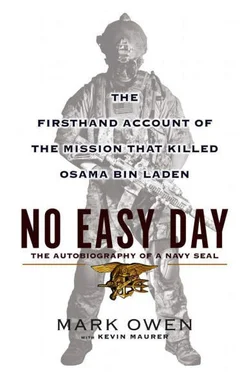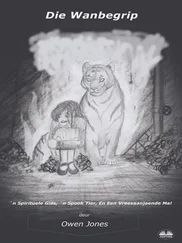We sometimes called our officers “temps” because they showed up for a few years before moving on to check another box on their career path. They bounced from one job to another, never spending enough time to build the kind of roots the enlisted guys did. We tended to stay with one team for a lot longer. Jay was my fourth commanding officer since being at the squadron.
“I guess he’s been pretty busy lately,” the mulch guy said.
I was surprised, since we’d been off for the last three weeks. After a deployment, most guys just wanted to hide out. It was normal for someone at Jay’s level to have work relating to mission coordination and planning. It just seemed strange that Jay was already so busy since we had been on leave.
“What are you talking about?”
“I did his yard the other day,” the mulch guy said between loads. “There is something big going on, and he’s been up in D.C.”
“What?” I said, confused. “He’s supposed to go to Mississippi with us in two days.”
At the time, the Arab Spring was raging. Egypt had a new government and protests had sprung up across the Middle East. Civil war had gripped Libya, with rebels calling for NATO support. With hotspots in Syria, not to mention the Horn of Africa and Afghanistan still demanding attention, speculating on what could be spinning up was difficult.
We were briefed weekly on any existing or expected threats worldwide. Our intelligence department went over each region in the world, sometimes with a special emphasis on a certain situation like Libya. The brief usually ended with the latest information and missions in Afghanistan and Iraq. The better informed we were, the more prepared we’d be.
It wasn’t uncommon for us to spin up on a mission, conduct rehearsals, only to wait for decision makers in Washington to approve it. Sometimes, like with Captain Phillips, we’d go. But most times, we’d just wait and eventually stand down. Over the years, most of us learned to keep our heads down and focus on the task in front of us, and leave the speculation to others. It saved energy, if nothing else.
I wrote off the mulch guy and was thankful I was a team leader and not an officer. Officers get jerked around ten times more than we do. Either way, I was ready to go have some fun in Mississippi.
______
This trip to Mississippi wasn’t like the time I spent down there in Green Team. I didn’t have to worry about picking a bottom five or possibly being sent home for improper CQB. We’d spend half the day at the range and the other half running through the kill house working on our skills and making sure everybody was in sync. We had several new guys in our troop, and we had to make sure they were up to speed.
No one really noticed that Jay and Mike, the squadron’s master chief, who is the most senior enlisted SEAL in the unit, weren’t there. But the mulch guy’s words were stuck in my head. I wondered what was so special in D.C.
We came home on a Thursday. On the way to the airport, I got a text message from Mike.
“Meeting 0800.”
Mike was massive like Charlie, with thick arms and a broad chest. He had been stationed at DEVGRU for as long as I was in the Navy. Like Jay, he didn’t go out on many missions.
On the way back, I found out some of the other guys in the squadron received the same message. Charlie called me the night I got back into town.
“You get that text?” he said.
“Yeah. You got any scoop? Heard anything?” I said.
“Nope. I know Walt got it too,” Charlie said. “I guess there is some list.”
Charlie rattled off a few other names from the list. It wasn’t whole teams, but senior guys.
“I can’t wait to find out what this is all about,” I said. “Sounds suspect.”
I got to the command early the next day and changed into my “working” uniform—a Crye Precision tan desert pattern and Salomon low-top running shoes—and dropped my cell phone in my cage.
The meeting was in our secure conference room, which meant no phones. The conference room was on a floor designated as a Sensitive Compartmented Information Facility, or SCIF. Pronounced “skiff,” it’s an area used to process classified or top secret information. We had special badges that got us through the security doors. The lead-lined walls kept out electronic listening devices.
Inside the conference room, the four flat-screen TVs were dark. There were no pictures or maps on the wall. No one had any idea what to expect. I grabbed a chair at the circular table in the middle of the room. I saw Walt, Charlie, and Tom, my old instructor from Green Team. He nodded when he saw me.
Tom was Steve’s old boss. It was odd not seeing Steve. I had deployed with him for the past eight years. Even if this was a wild-goose chase and we got jerked around, it was still strange to spin up on something and not have Steve around. I had a feeling when this turned out to be nothing, he would have the last laugh.
There were almost thirty people in the room, including SEALs, an EOD tech, plus two support guys. With us all crowded inside the room, Mike sat down at the table and started the briefing. Jay, the squadron commander, was absent. Mike seemed a little uncomfortable and didn’t provide a lot of detail.
“We are going to do a joint readiness exercise, and we’re going down to North Carolina to train,” Mike said, passing out a list of gear to pack. “I don’t have a lot of information. Just load out your standard assault stuff, and we’ll tell you more Monday.”
I scanned the list. Nothing on the page—guns, tools, and explosives—was unique or gave away what we’d be doing.
“How long are we going to be gone?” one of my teammates asked.
“Unclear,” Mike said. “We leave Monday.”
“Do we have berthing or do we need tents?” Charlie asked.
“Berthing and chow will be provided,” Mike said.
A couple of other guys asked similar questions, but Mike shut it all down. I started to raise my hand to ask a question. I was curious how we were going to be organized. Overall there was a lot of experience in the room. They’d drawn us from different teams. On most teams, the new guy usually carries the ladder and the sledgehammer. But looking around the room, we had all senior guys. It looked like some kind of dream team they were putting together.
Before I got my hand up, Tom just looked at me and shook his head. I put my hand down. Tom typically never got too spun up. I was usually a little more vocal. My mind was spinning with questions I wanted answered. Not knowing what we were going to do grated on me, especially with the feeling we were just getting jerked around.
“Let’s worry about the load-out,” Tom said as we left. “And we’ll know more Monday.”
We all knew what to do and the gear to pack. I went down to the cages and found one of my guys.
“Hey, brother,” I said. “I need to borrow your sledge.”
Senior guys grabbing gear like a sledgehammer was rare, which brought even more questions from our teammates.
“You got it,” he said. “But why again am I giving up my sledge?”
I didn’t have a good answer.
“We’re going on an exercise,” I said. “They called a bunch of us into a meeting today and we’re going down to North Carolina. They’re calling it a joint readiness exercise.”
I wasn’t any more convincing than Mike. My teammate just looked at me with a “what the fuck?” expression on his face.
Back in our squadron’s storage area, we started loading two ISUs—small, square shipping containers—with our gear. It took most of the day, and by quitting time the containers were filled with tools, guns, and explosives.
While we packed, speculation was rampant. Some guys figured we’d be in Libya in a few weeks. Others bet on Syria or even Iran. Charlie, who seemed to be mulling over all of the questions and non-answers, came out with the boldest prediction.
Читать дальше












